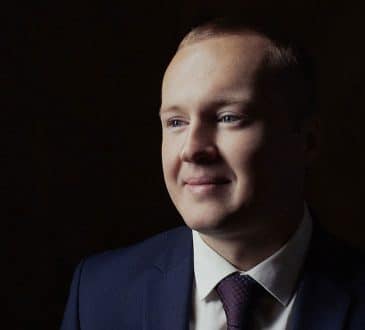How an Executive Coach Changed my Life

Working with an executive coach changed the way I look at my work and my career. I wanted to excel at my university teaching job and reached out to an executive coach at Duke Corporate Education (Duke CE) to give me feedback on the way I taught executive MBAs. I knew executive MBA students required a different approach than teaching undergraduate business students. To be effective with these more experienced students, I needed someone who would be candid with me about what was working in the classroom, and what I needed to do better to engage students in their learning.
After a couple of conversations about what I was looking for, this particular coach put me in touch with the person who hired faculty for Duke Corporate Education programs. The original coach knew her own limitations and so knew that this other person’s perspective would help me even more. This faculty director ended up attending one of my executive MBA classes and took notes—lots of notes. At the end, she came up with many ways for me to improve my MBA teaching. Even though this type of feedback is not always easy for us to hear, it is vital if we want to improve our in our profession. I knew that I wanted to move on to teach in executive programs, as well, so this feedback would prove useful later, too.
As I saw my own executive teaching improve, two things changed for me. First, I was hired to teach in an executive program through Wharton for the American Bankers Association Stonier Graduate School of Banking. For the past five summers, I have taught a leadership class for over 200 bankers. I know that this coaching helped prepare me for that opportunity. Teaching a leadership to bankers who are there to learn to excel in their banking career is a challenge. Second, I began my own journey to become a coach. As I realized how much of a difference an outside perspective gave me to enhance my own career, I knew that coaching was a way that I wanted to help others thrive in their careers, as well.
I began my own coaching journey with Gallup through its mentoring and advising training. As I began to use their strengths coaching in my executive MBA program, I could see my MBA students discover how to use strengths as well as their degrees to forge new career paths for themselves. This led me to take the next level of training to become a Global Gallup-certified CliftonStrengths coach. This certification allowed me to continue coaching my executive MBA students, the Wharton program bankers, and other executives who are looking to use their strengths to lead in new ways and add value at work.
Here are some ways that a coach can help you:
Are you looking to pivot in your career? A coach can help you discover how you are using (or maybe not using) your strengths and help you discover new ways that you can use your strengths more fully. You might discover a new direction for your career, or just a small pivot that can allow you to use more of your strengths to excel and feel satisfied at work.
Do you want to lead as a coach? One of the leadership skills we have uncovered in interviewing top executives (as well as their employees) is that the best leaders coach their employees, not micromanage them. After working with a coach, you learn how more about how to be a coach yourself. Coaching is a different mindset, including supporting, mentoring, affirming, and empowering others. It is bringing out the best in others when they may not always see it in themselves.
Are you looking for more ways to add value at work? One of the things I love about the CliftonStrengths approach to coaching is that it gives you five ways you add value at work. Sometimes we take them for granted and assume everyone thinks or acts the way we do, but Gallup will tell you that your top five strengths are 1 out of 33 million, which means that everyone does not think and act like you do. Your organization needs the top five ways you add value in order to be its best.
Are you looking to strengthen the way your teams operate? Coaching teams is also a powerful way to improve organizational performance. When teams spend time appreciating the strengths each person brings to the team, the team can improve the ways it communicates and collaborates. Most organizations would love for all of their teams to function better. Employees also appreciate being given the opportunity to improve their skillset.
Many companies use coaching as a tool for people who need to address performance difficulties, giving it a negative vibe. But even the most outstanding performers can always improve themselves. I personally found that a coach helped me think of my own life and work in new and unexpected ways. After working with a coach, we might improve the work we are already doing or find a new path that we had not even thought of. Now I think of coaching as a gift that I gave myself.
Written by Dr. Karen Mishra.
Have you read?
Ranking the 50 greatest revenge movies of all time.
Ranked: The World’s Most Powerful Countries For 2023.
Ranked: Countries with the highest share of women in parliament.
The World’s Largest Gold-Producing Countries, 2023.
Ranked: The World’s Most Influential Countries, 2023.
Ranked: World’s Most Forward-Thinking Countries, 2023.
Bring the best of the CEOWORLD magazine's global journalism to audiences in the United States and around the world. - Add CEOWORLD magazine to your Google News feed.
Follow CEOWORLD magazine headlines on: Google News, LinkedIn, Twitter, and Facebook.
Copyright 2025 The CEOWORLD magazine. All rights reserved. This material (and any extract from it) must not be copied, redistributed or placed on any website, without CEOWORLD magazine' prior written consent. For media queries, please contact: info@ceoworld.biz








